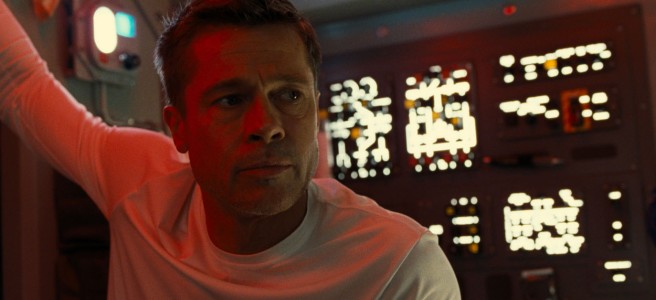In 2019’s answer to the endless popularity of Space Exploration films, ‘Ad Astra’ presents a poetic narrative that wouldn’t be out of place in ‘2001’. In Brad Pitt’s second film of the year, he voyages away from 1969 and into the near distant future to tell a story of hope, determination and fatherhood.
The story of Ad Astra is one that is very easy and yet very difficult to sum up. The basic synopsis is that Pitt plays an astronaut who must delve into deep space to search for his long lost father, whose experiments now threaten the solar system. The simple narrative allows Pitt to journey through various stages of our solar system as he ventures ever further from Earth, all while he narrates his inner thoughts in a soft, omniscient fashion.
Director James Gray, who also co-wrote the film, stated in 2017 that he was aiming to make “the most realistic depiction of space travel that’s been put in a movie”. With very few exceptions where the film asks you to suspend your disbelief, he has done just that, creating a film that can join the ranks of recent films like The Martian and Gravity. It’s a beautifully believable story which at its heart is not about space or the future, but instead the relationship between a father and son.
The central performance Pitt gives is absolutely stellar. Understated doesn’t even begin to describe it, because it’s so natural it’s almost like he isn’t acting at all. His performance helps to create a brooding, emotional atmosphere that adds character tension to the otherwise slow-moving narrative. Tommy Lee Jones also stars in a reduced role, and offers an added layer of human determination to the story. Added actors include Ruth Negga, Liv Tyler and Donald Sutherland, but this film really is the Brad Pitt show as he dominates every scene of the movie.
The cinematography by Interstellar and Dunkirk shooter Hoyte van Hoytema is gorgeous, blending beautiful compositions with great lighting depth and brave colour choices. You could pause the movie at any point and be presented with a piece of art that helps tell the story. This is how films should always be shot.
Similarly, the music and sound of the film is gorgeous. Max Richter was on main composing duty, with Lorne Balfe helping with additional compositions, and their collaboration has delivered a beautifully atmospheric score that delivers emotion and tension in equal measure. The sound design uses low bass registers to immerse the audience in the space travel, and just like Arrival, sounds very natural and organic.
The movies vision of the future is a wonderfully intriguing one. Commercial space flight is now possible, the Moon and Mars have been colonised, and there’s an abundance of new tech to aid humans. What’s lovely is that all these innovations arrive on screen without fanfare. They are simply there in a tactile, lived in world to aid the story. Unlike some futuristic films that go the ‘Back To The Future Pt. 2’ route, this film is very understated on future advancements, and this felt very refreshing.
What makes this film stand out is its refusal to play by the blockbuster rules, and while delivering action and thrills, it is a very slow, poetic and ultimately optimistic space opera compared to most. The scale and budget of the film is stunning considering how off kilter the film is, but in the world of big loud blockbusters, it’s always refreshing when these braver sci-fi films (Arrival, Gravity, Moon etc.) get funded and show how intelligent blockbusters can be.
Overall, Ad Astra is a film worthy of anyone’s time. Tense but thoughtful, fast moving yet relaxed, the film manages to defy the conventions of modern popcorn cinema while still delivering all the thrills you’d want from a blockbuster. Accompanied by Brad Pitt’s outstanding performance, it’s a stunningly optimistic film that, in these dark days, presents a gloriously positive look at our future.


